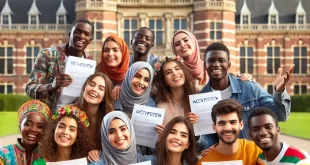Research with neutrons, with its interdisciplinary approach, is indispensable for modern science. Taking into consideration tremendous changes in the European neutron landscape and assuming responsibility for sustainability, the neutron community is nowadays facing an important task to ensure long-term perspectives, that essentially depend on its ability to create a new generation of innovative highly-skilled researchers. To tackle this challenge, Forschungszentrum Jülich (FZJ), Technical University Munich (TUM) and Helmholtz-Zentrum Hereon (Hereon), partners at the Heinz-Maier-Leibnitz Zentrum (MLZ), are running the Marie-Skłodowska Curie Acton (MSCA) COFUND project “Global Neutron Scientists” (GNeuS) (https://GNeuS.eu) that trains young neutron scientists through the establishment of a well-structured postdoctoral research program with a strong interdisciplinary and intersectoral approach and global outreach. Within GNeuS, postdoc grants are offered to solving the grand challenges facing mankind in areas such as environment, energy, key technologies and life science as well as improving the existing instrumentation and the ancillary equipments and developing new sources or optimizing the existing ones. During the five year project lifetime and three calls, the three MLZ Partners offer a total of 45 fellowships each with a duration of 24 months.
The three GNeuS MLZ Partners are offering
15 GNeuS Postdoc Positions in Neutron Science of 24 months each (Full-time job)
Your Job:
- Planning, organizing and implementing your own research project within the neutron community in a scientific or technological field of your choice
- Cooperation with various partners, your research program may include up to three secondments, of up to about three months each, with at least one mandatory secondment in a non-academic partner organization
- Presenting the results at international conferences
- Supervision of PhD students
- Presentation, communication, and publication of cutting-edge research in international environment
- Training in soft skills
- Teaching in scientific courses
GNeuS Eligibility criteria / Your profile (https://gneus.eu/eligibility-criteria):
- A doctoral degree or relevant full-time research experience
- At least one original publication in a peer-reviewed journal
- Background in a neutron scattering technique
- Interdisciplinary and cross-topical thinking
- Team-minded, self-reliant, and highly motivated character
- Good communicational skills in English (German in addition will be preferred)
- Following the MSCA mobility rules, you have not been resided or carried out your main activity (work, studies, etc.) in Germany for more than twelve months in the three years immediately before the present call deadline; compulsory national service, short stays such as holiday and time spent as part of a procedure for obtaining refugee status under the Geneva Convention, are not taken into account
The candidate is warmly invited to submit the application by completing the application package consisting of:
- Research project with a research topic freely decided by the candidate limited to ten pages
- CV limited to two pages
- Letter of Commitment of a new hosting institution (optional)
- Personal Career Development Plan (PCDP)
- A video interview through an automatic system
- Two reference letters
- Questionnaire on ethical issues
- Any other important documents
not later than January 15, 2022, 18:00, via the GNeuS Portal! Information and template documents for the application package are available at https://gneus.eu/application-package.
Please note that the complete application package has to be submitted through the GNeuS portal. For technical reasons we cannot accept applications via email.
Please feel free to contact us per email to gneus@mlz-garching.de for any information you may need.
Detailed information is available at the portal https://GNeuS.eu.
The GNeuS FAQs are available at the page https://GNeuS.eu/faqs.
The candidate is warmly invited to contact the designated main supervisor well in advance for the preparation of the research programme, as well the local supervisor(s) at the hosting institution(s) where secondment(s) is(are) planned. The list of available main supervisors and of potential research topics are reported at https://gneus.eu/topics-supervisors/.
Our Offer:
Develop your own designed research programme with the sponsoring of European Commission and major actors of neutrons research, and benefit from a unique environment both in terms of training and career support designed according to top-class recommendations, allowing to make the most of your scientific potential.
- We offer a world-leading, interdisciplinary and international research environment, provided with state-of-the-art experimental equipment and versatile opportunities to grow as a young and curious researcher
- Development of soft as well as entrepreneurship skills will be achieved with the GNeuS training program
- A highly motivated group at one of Europe’s largest research establishments
- Chance of participating in international conferences and project meetings
- Continuous scientific mentoring by your scientific advisor
- Participation in overarching seminars including certificate
- Further development of your personal strengths, e.g. by excellent training opportunities under the guidance of your GNeuS Supervising Team
- Payment will be made in accordance with the applicable salary guidelines of the host institution
- Working place at the leading centre for cutting-edge research with neutrons and positrons MLZ in Garching, Germany, and at one of the three MLZ partners
Opening and preparing for professional development opportunities supported by our Career Center & Postdoc Office (https://www.fz-juelich.de/careercenter/EN/Home/home_node.html).
The three MLZ partners promote equal opportunities and diversity in its employment relations.
We also welcome applications from disabled persons. Severely disabled persons and those equalling severely disabled persons who are equally suitable for the position will be considered preferentially within the framework of legal requirements.
This project has received funding from the European Union’s Horizon 2020 research and innovation programme under the Marie Skłodowska-Curie grant agreement No 101034266.
 Etudes Non Stop Study Non Stop
Etudes Non Stop Study Non Stop

